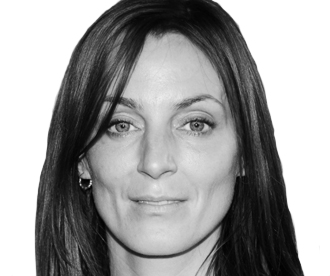By Yiting Wang, Une Lan May 25, 2018
The negative news of Folli Follie has not shaken Fosun’s confidence in making investment.
According to the latest released announcement of Fosun International (00656.HK), after increasing its shareholding in the Greek brand Folli Follie (FFGRP:GA) to 15%, Fosun further upped the ratio to 16.37%.
In terms of the previous alleged financial report fraud, Fosun said that they had reviewed the public information and audit reports in the 20 years after the stocks being listed. They had full confidence in the executives, claiming that there were many subjective hypotheses. However, in order to ensure the right of the other stockholders, Fosun sent inquiry letters to the non-executive director at Folli Follie.
According to the financial report of Folli Follie, the company has more than 930 points of sale all over the world. Earlier this month, however, Quintessential Capital Management LLC (QCM) pointed out that only 289 among them were in operation and its financial figures in the Asian region was also questionable.
This news aroused the attention of the local stock market regulator who required this brand to hand over its account to the third party for an independent audit. Although Folli Follie has responded with a series of public statements, rebutting the query of QCM, its market value shrank by 50% in two consecutive days.
This, however, was not the first time in the recent past that Fosun increased its holding in Folli Follie. Fosun increased the shareholding to 15% in the first week after the news came out.
Stock price ofFolli Follie in the latest months
Looking back on the recent stock price of Folli Follie, Fosun’s twice increasing of holding clearly had a positive impact on the rebound of the share price. Chairman Guo Guangchang indicated that the investment Fosun made were not by cash splashing or imagination. The aim was to energize the assets, making each of them profitable.
The increase of holding best represents the group’s outlook of investment. Fosun’s confidence in Folli Follie derives from the profitability of the brand and the potential of Chinese entry-level luxury market.
In May 2015, Fosun International purchased a total of 6.36 million common shares from Folli Follies Group with the price of 13.30 euro each share. The deal was settled at around 84.588 million euro (950 million RMB). After that, Fosun became one of the largest strategic investors with 9.5% equity stake in Folli Follie Group. Later, Fosun further raised the shareholding ratio to 13.9%, becoming the second largest shareholder of Folli Follie Group.
Folli Follie entered China in 2002 and shifted its development center to Chinese market after collaborating with Fosun. In 2014, actress Liu Shishi was announced as the spokesperson for Folli Follie, making the orange clover logo increasingly familiar to the Chinese consumers.
According to the statistics of LADYMAX.cn, the income and profit of Folli Follie Group in 2016 both posted double-digit increase. The income increased by 12.1%, from 1.193 billion euro in 2015 to 1.3373 billion euro in 2016. The EBIT was 29.19 million US dollar. According to its latest financial report, the income increased by 6.1% this year to 1.4193 billion euro with the EBIT of 29.49 million euro.
In order to keep expanding its market share in China, last year, George Koutsolioutsos, CEO of Folli Follie said that the company would reconstruct its digital business and launch the e-commerce website named The Double F. In addition, Folli Follie developed its e-commerce business with three agencies, forming an internal team of 16 staff. It is reported that the sales volume of the e-commerce platform exceeded expectation and 40% of the total sales are contributed by loyal consumers of the brand.
In 2014, actress Liu Shishi became the brand spokesperson
Folli Follie has about 200 stores in China, half of which are directly operated by the company and the other half are franchised stores. In 2018, Folli Follie China Director Connie Law said that 50 new stores would be opened in China. Thirty stores would run on a franchise model and the other twenty directly operated by the company in major Chinese cities, including Beijing, Shanghai, Guangzhou, Shenzhen, and Chengdu.
In respect of the investment, Fosun International’s fashion assets include American women’s wear brand St.John Knit, Italian men’s clothing brand John Caruso, and fast fashion brand Tom Tailor. In February, Fosun became the majority shareholder of French luxury brand Lanvin, paying 120 million euro for the stake. In March, the group purchased 50.87% of the shares in Austrian luxury underwear brand Wolford. As few accessories brands are in the group’s fashion portfolio, Folli Follie works as a compliment.
Folli Follie offers accessible luxury goods including jewelry, watches and accessories. According to the annual report “Double-clicking on the Chinese consumer” published by McKinsey&Company, in 2017, entry-level luxury brands were gaining momentum in China. In the next five years, the sales growth of these brands in China is expected to reach 11% to 13%, increasing to 620 billion RMB in 2025.
It is noteworthy that, according to the first quarter financial report published by Danish jewelery brand Pandora, the growth rate of sales volume in Asian market was only 1%. The growth in the Chinese market which accounts for 12% of the total sales is further slowing down.
Having been popular among consumers for years, Pandora now is faced with the crisis of losing peculiarity and novelty. This provides an opportunity for emerging accessible luxury brands. Clearly, with online and offline marketing channels, Folli Follie is pushing into the Chinese market with a faster speed.
However, Fosun does not stop expanding its fashion territory. In Paris, Guo Guangchang indicated in an interview that with a positive financial condition, the company was looking for more foreign trades opportunities including those in the fashion industry.
The stock price of Folli Follie surged by 24.88% to 4.80 euro per share as of today. The current market cap is about 321 million euro.












